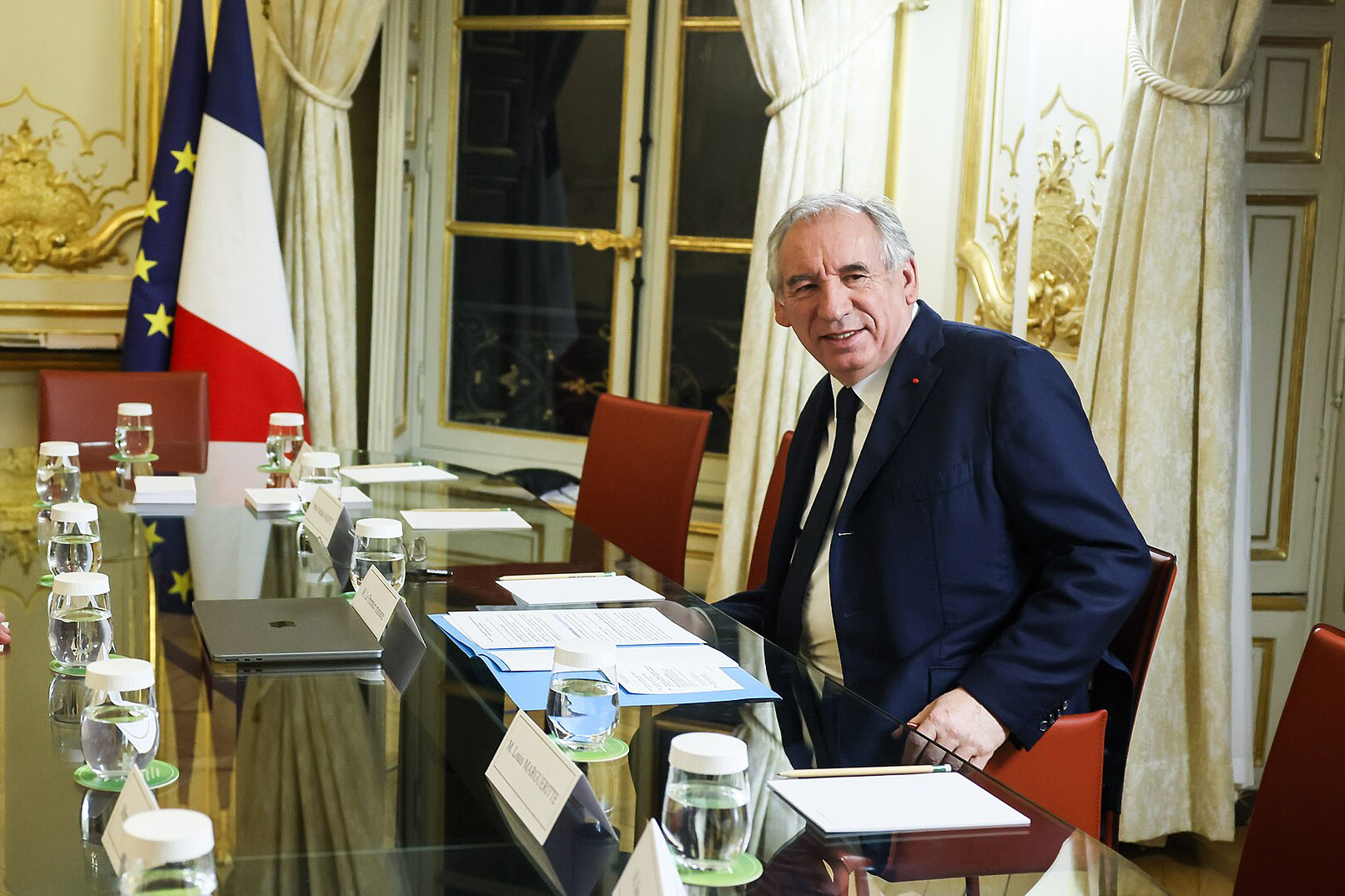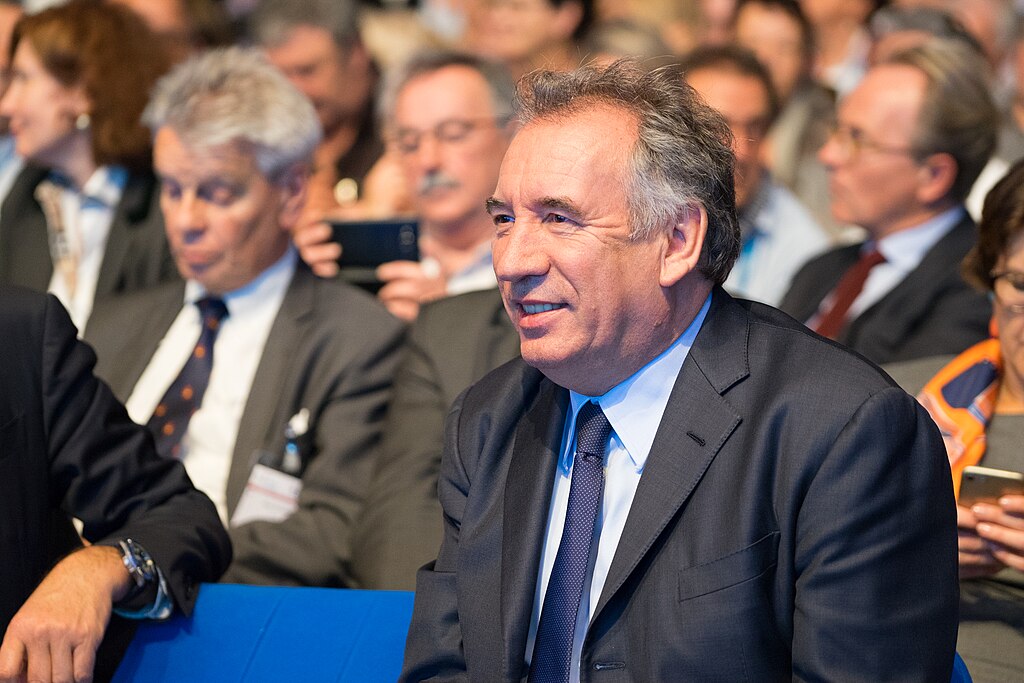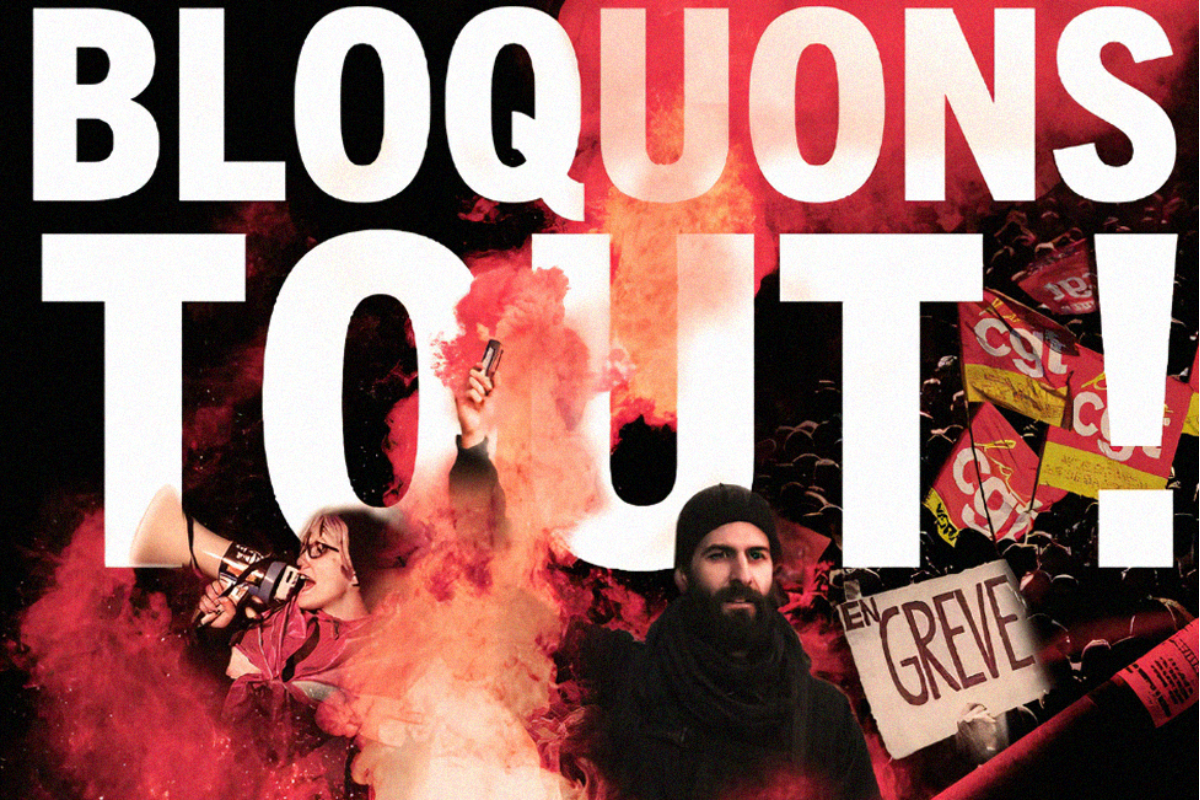Barring any dramatic developments, the Prime Minister of France Bayrou will fall on 8 September. Only political suicide on the part of the MPs of the Socialist Party could save this deeply unpopular government. For the time being, the leader of the Socialist Party Olivier Faure and his friends are not willing to take this step.
[Originally published in French at marxiste.org]
The hasty organisation of a vote of confidence in the National Assembly, two days before 10 September, is an attempt to defuse a social movement supported by two thirds of the population – and an even higher proportion of young people and workers.
In this sense, the movement of 10 September has won its first victory: the austerity budget plan concocted by Bayrou has been temporarily shelved. Far from weakening the movement, this could strengthen it. When our class enemy begins to retreat, it proves that they fear us. Moreover, the accumulated social anger and mistrust of the authorities will not be alleviated in the slightest by the fall of François Bayrou.
The role of the trade unions
Since Bayrou’s massive austerity announcements in July, which would see public holidays scrapped, services cut and pensions frozen, the call originating on social media has gained an enormous echo: Bloquons tout! (‘Let’s block everything!’) With echoes of the gilets jaunes movement of 2018, momentum is building for mass mobilisation to shut down France on 10 September.
At the time of writing, it is impossible to accurately predict the power of 10 September, let alone the consequences of what will follow, as the mobilisation is expected to continue after this date.
By calling on trade unions to organise a ‘general strike’ on 10 September, Jean-Luc Mélenchon hit the nail on the head. ‘Blocking everything’ implies massive strikes in key sectors of the economy. Mobilising on this scale will be very difficult to achieve without the direct involvement of the trade unions.

This summer, a growing number of federations, departmental unions, local unions and company unions affiliated to the CGT – as well as to SUD and Force Ouvrière – called for mobilisation and strike action on 10 September. Most of them emphasise that this day of action must mark the starting point of a broad social movement to put an end to all austerity policies. This is the right approach. Only the development of a movement of renewable strikes involving a large number of sectors can create the conditions for a decisive victory for our side.
Initially reluctant to mobilise for 10 September, the CGT confederal leadership was forced to change its position under pressure. It “calls on its unions to discuss with employees and organise strikes wherever possible” on 10 September. But at the same time, it mentions another “unified inter-professional day of strike action and demonstrations,” decided upon by an inter-union committee, which would take place “in September.”
This is too vague! The CGT leadership must say what it is proposing for 11 September and the days that follow. It must announce a clear, precise battle plan to build a renewable strike starting on 10 September. Failing that, the most combative federations and departmental unions of the CGT must take the lead as soon as possible.
What alternative to Bayrou?
The mobilisation on 10 September and the days that follow will weigh heavily on subsequent political and parliamentary events. If the movement is powerful, Macron could try to extinguish it by calling new parliamentary elections.
Bourgeois commentators point out, with a heavy heart, that this is the most ‘reasonable’ option from the point of view of the ruling class, because a new prime minister from the existing hated parliament, appointed through a simple nomination, would be very unpopular from the outset.
It would be a provocation, one more reason to ‘block everything’. Moreover, it would not change the situation in the National Assembly, where the National Rally (RN) and the Socialist Party (PS) are unwilling to sacrifice their future on the altar of Macronism. Finally, the dissolution of the National Assembly would be a way for Macron to ward off the spectre of his own resignation. Whether it will be successful is another question.
Mélenchon has stated that his immediate goal is to force the head of state to resign as soon as possible. We are obviously in favour of this. However, the fundamental question that the 10 September movement will raise, if it succeeds in ‘blocking everything’ for a prolonged period, will go far beyond the fate of Emmanuel Macron.
If they succeed in blocking the economy, workers will demonstrate to everyone – and first and foremost to themselves – that they are the decisive force in society. Not a light shines and not a wheel turns without their kind permission. Their labour is the sole source of the ruling class’ enormous profits, in the name of which it demands a drastic austerity plan and the destruction of public services.

Since workers create all the wealth in society, they can and must run society. Hence our slogan: “for a workers’ government”. At first glance, it may seem abstract, out of reach. But in reality, this slogan will impose itself on the consciousness of millions of employees when their collective mobilisation – in a massive and renewable strike – demonstrates that without them, economic and social life comes to a halt.
The next step, which flows immediately from this, is the conviction that society will function much better once it is rid of the handful of giant parasites that are destroying it. Workers in power will know how to reorganise the economy on rational and democratic foundations. They will begin by expropriating the big capitalists, the major means of production and exchange, which they will then use to satisfy the needs of the majority.
Once the infernal race for profits has been eliminated, the enormous industrial and technological wealth of society will make it possible to quickly eliminate all forms of poverty and gradually reduce working hours.
Paying off their debt?
At his press conference on 25 August, Bayrou once again insisted at length on the burden of public debt. In 2025, interest payments alone will amount to more than €66 billion, making it the state’s largest item of expenditure.
Bayrou’s conclusion: we must cut social budgets, freeze pensions and all social benefits, eliminate two public holidays and thousands of civil service jobs, stop subsidising certain medicines, and further impoverish the unemployed – in short, hit the mass of the population, with the notable exception of the richest and big business. It is the latter, however, that enjoys by far the largest part of the government’s largesse from public coffers – big business taking the majority of the government’s €210 billion annual subsidies earmarked for enterprises.
When someone politely suggests reducing the debt by dipping into that €210 billion instead of picking the pockets of the people, then the journalists and right-wing politicians almost faint: “You can’t be serious! Investors will flee! Society will collapse! An army of (Russian) locusts will ravage our cities and countryside!” This is barely even an exaggeration.

That said, from the point of view of the French ruling class, there is a relentless logic to this stubborn refusal to touch state subsidies to businesses. The long decline of French capitalism, which is constantly losing ground to its competitors, forces successive bourgeois governments to stuff the big capitalists with public money – while presenting the bill to the exploited and oppressed.
This makes it all the more clear that we need to get rid of capitalism itself. Nationalising all the banks and major means of production alone – without compensating big shareholders – will wipe out a big chunk of public debt. The rest can simply be repudiated by the power of the workers.
In a socialist economy, credit will cease to enrich billionaires. It will become an instrument of democratic planning of production. Then, under communism, the development of the productive forces and the well-being of the masses will have made it possible to consign debt and its companion – the fetish of money – to the dustbin of history.
In France, as elsewhere, the socialist revolution is the only way out of the hell of capitalism in crisis. It is quite simple: the social problems created by capitalism cannot be solved within the framework of that same system. It is high time that the organisations of the labour movement – starting with La France Insoumise and the CGT – took note of this obvious fact and drew all the practical conclusions from it. In any case, we call on all those who understand this to join us in building the Parti Communiste Révolutionnaire, the French section of the Revolutionary Communist International.






